Courses
Faculty
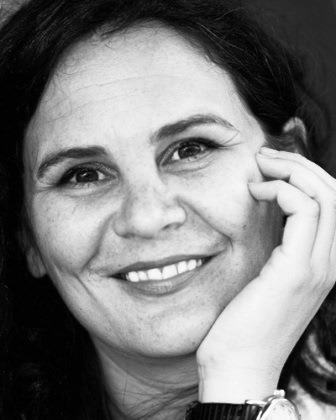
- Parissa HAGHIRIAN
- Professor
- International Management and Marketing
- Kyoto University of Advanced Science
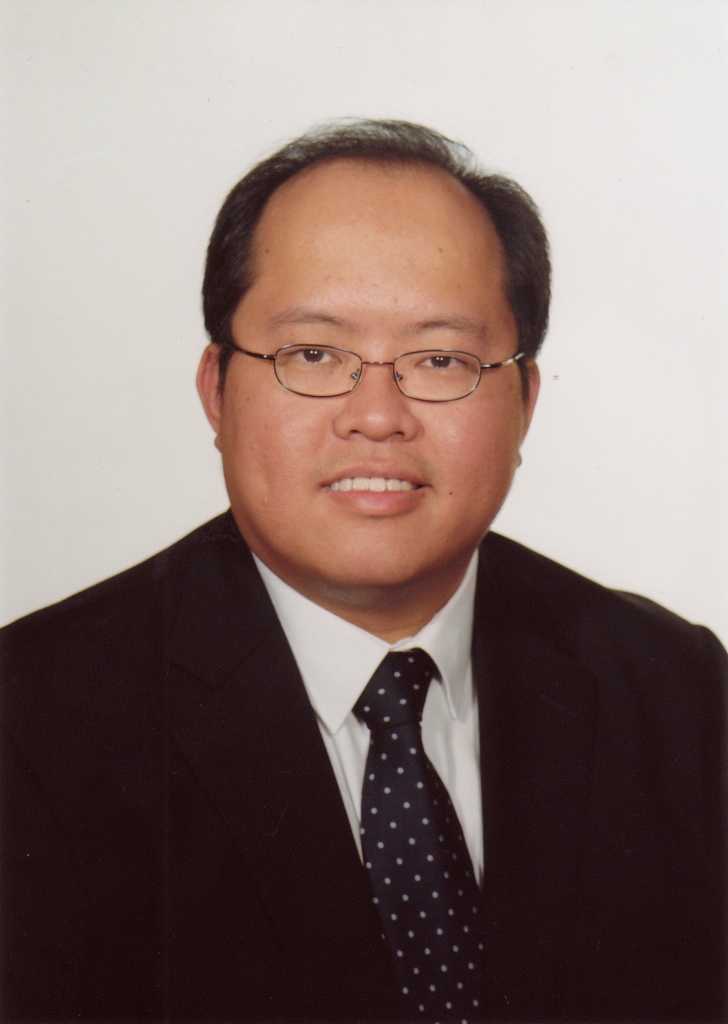
- Tai Wei LIM
- Professor
- Singapore University of Social Sciences

- Jonathan ZWICKER
- Professor
- Department of East Asian Language and Cultures
- University of California, Berkeley

- Dyron DABNEY
- Professor
- Political Science Department. The Institute for Education on Japan
- Earlham College
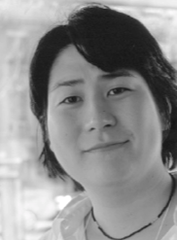
- Karen NAKAMURA
- Professor
- Department of Anthropology
- University of California, Berkeley
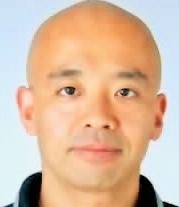
- Juichiro TANABE
- Assistant Professor
- Waseda University

- Emer O'DWYER
- Assistant Professor
- Oberlin College

- Alexander MURPHY
- Assistant Professor
- Clark University

- Franz WALDENBERGER
- Professor
Munich School of Management - Ludwig Maximilians-University
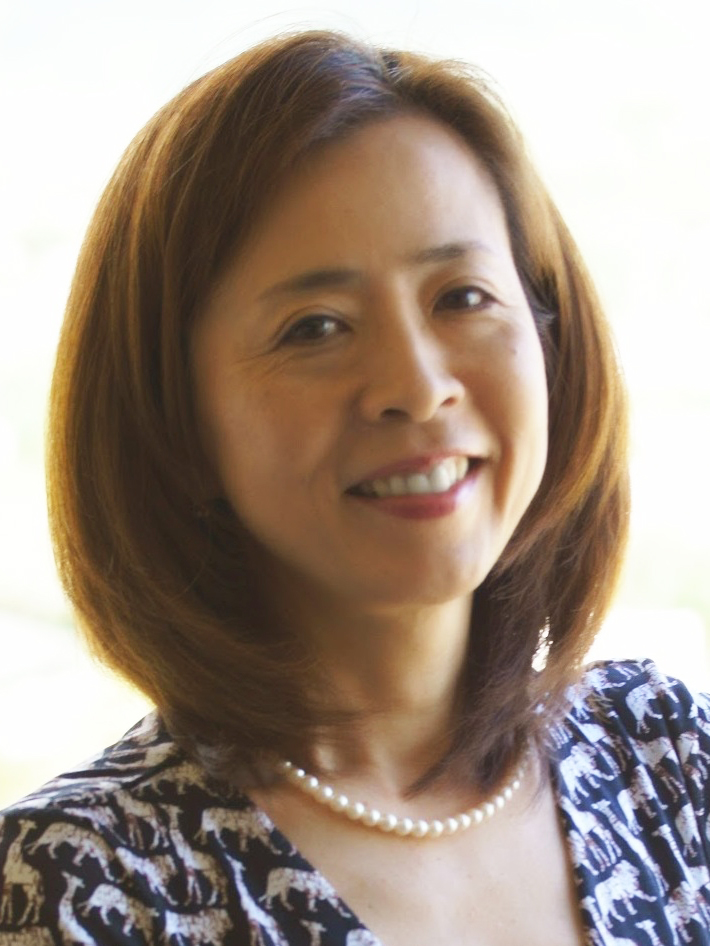
- Toake ENDOH
- Professor
- Waseda University

- Kazumi FUJITA
- Executive Officer
- Sanrio Company, Ltd.
Course Descriptions
Business I : Parissa HAGHIRIAN
Business and Management in Japan
The course introduces the characteristics of Japan as a place of business and the main aspects of Japanese management. The course starts with a theory lecture on culture and its relevance for international management and business communication. After this an overview of the modern Japanese business environment is given. Major points of discussion are the most prominent aspects of Japanese management, such as production management, negotiations, Japanese strategies as well as human resource and knowledge management within Japanese corporations.
Business II : Parissa HAGHIRIAN
Case Studies in Japanese Management
This course focuses on elementary strategic aspects of Japanese corporations. It aims to develop strategic thinking in a Japanese market context and will provide students with an opportunity to sharpen their written and oral presentation competencies. Utilizing a teaching approach that mixes cases, class discussions and group workshops, students will learn key concepts and tools used in solving marketing and management problems in the Japanese market context.
The majority of meetings will be held in a seminar format. Students are expected to attend classes and participate actively in class discussion. Students will form students groups and solve case studies on Japanese Management. Students are required to prepare a case study report and a supporting presentation on their topic. Accordingly, attendance and participation in class discussions will be critical to the success of this course and will also determine students grades.
Business III : Kazumi FUJITA
The Art of Japanese IP
This 10-session course offers a comprehensive exploration of Japanese anime, manga, game, and character IPs, focusing on the business strategies behind their global success. Through in-depth case studies of iconic brands such as Sanrio, Pokémon, and Nintendo, students will examine the unique philosophies and approaches that distinguish Japanese IPs from their Western counterparts, rooted in Japan's societal and cultural context. The course includes on-site fieldwork in Japan and guest lectures, providing a well-rounded, experiential understanding of Japanese IP.
Culture I : Alexander MURPHY
Japanese Urban Culture in Sight and Sound
Whether via the dance halls of jazz-age Tokyo, the streetside puppet theaters of postwar Yokohama, or the pachinko parlors and virtual pop idols of contemporary anime and J-Pop, the modern transformations of Japanese urban pop culture form a vibrant, complex audiovisual field. This course asks: how can we grasp the diverse experiences of modernity and popular culture in Japan through the study of its sights and sounds? How have the realms of aurality and vision in Japan been experienced, represented, and marshaled to construct or contest narratives of progress, difference, and sociality, and how have media technologies functioned therein? Over the term, we will engage these questions via in-class discussions, group activities, and "sound-walk" field trips in Tokyo.
Culture II : Alexander MURPHY
Movements and Margins in Japanese Culture and Society
This course aims to challenge dominant frameworks of ethnicity, gender, and class in Japanese culture and society by attending to the experiences of marginal subjects in popular media and culture production. Using "movement" as our thematic lens, we will consider how these subjects have navigated experiences of migration, itinerancy, and social precarity, and how they have forged social solidarities in the process. In so doing, we will ask: If Japan's margins are fundamentally mobile and ever-shifting, how might they shift our understanding of the center in turn?
Culture III : Tai Wei LIM
Japanese Popular Culture: Globalization, Cultural production / Consumption and Creative Ecology
This course is centered round an interdisciplinary area studies (specifically Japanese studies) approach to studying Japanese popular culture. It is divided into three main sections. For its conceptual and theoretical approach, the Japanese studies course employs area studies perspectives in ethnography, globalization studies, historical perspectives and cultural studies to examine the subject matter. In examining the ideas of globalization, the course critically looks at the ethnography and ecology of creative production. In terms of mechanisms of dissemination, it then examines how globalization facilitated the popularity and proliferation of Japanese ACG (Anime, Comics, Games) products.
Economics I : Franz WALDENBERGER
Japanese Economy
The first part of the course provides an overview of Japan's postwar economic development. It covers the so-called economic miracle and bubble economy (1955 to 1990) as well as the country's consequent economic stagnation, and asks how the two opposing developments can be explained within one conceptual framework. The second part of the course looks at various challenges the Japanese economy is facing today, such as demographic change (ageing and population decline), the green transformation, the digital transformation and geopolitical challenges. To benefit from the course, students should have a strong interest in economics. They need not be trained in economic theory, but should be familiar with economic terms such as growth, productivity and GDP. Regular participation will be checked through online feedback questions. Students will be grouped in teams and prepare a presentation of a topic of their choice to be presented in class at the end of the course.
History I : Tai Wei LIM
The Contemporary History of Japan: An Area Studies Approach in Examining Historical Transitions from postwar Showa to Reiwa Eras
This course introduces class participants to selected issues and developments in contemporary Japan. It studies the crucial debates, challenges and trends that have shaped Japanese history, including developmental history, natural disaster recovery, environmental perspectives, demographics, culture and society. It does not pretend to be comprehensive but utilizes these selected issues to motivate class participants to analyze critically contemporary Japan from eclectic perspectives. Two focused cases studies, the Great East Japan Earthquake recovery as well as the demographic transition in Japan, will be discussed in the course. Embedded in the course are fieldtrips and video presentation for the experiential learning experience.
History II : Emer O'DWYER
Modern Japanese History
This course surveys Japan’s modern transformation from the Meiji Restoration of 1868 to 1952 when Japan resumed its sovereignty following an almost seven-year occupation by Allied forces in the aftermath of World War II. It examines political, social, and economic modernization with special attention to the case of Tokyo. We focus on how economic volatility, popular struggles for representative democracy, war, and colonization represent aspects of Japan’s twentieth century experience as well as widely shared dilemmas of modernity.
Interdisciplinary I : Juichiro TANABE
Japanese spirituality, comparative analysis with Christianity and Islam, and challenges for harmonious globe
How people having different cultural, religious, and social values and backgrounds can understand and learn from each other is a critical challenge. This course will analyze Japanese religion and philosophy, make comparative analysis with Christianity and Islam, and explore how religions can contribute to humane globe. The course will be divided into three sections. The first section will introduce major Japanese religions and philosophies. Here, core values of Buddhism and Shintoism will be presented. The second section will examine what Buddhism and Shintoism can offer to contemporary social and global problems facing humanity. The third section will explore what Japanese religion and philosophy and Christianity and Islam can learn from each other. Here, we will look into how different civilizations can co-exist in the middle of diversity for more harmonious and humane globe.
Literature and Art I : Jonathan ZWICKER
The Postwar
Using novels and films from the period covering 1945 to the 1970s, this course will introduce students to the major historical, intellectual, and artistic currents of postwar Japan. Authors and filmmakers will include Dazai Osamu, Hayashi Fumiko, Sakaguchi Ango, Mishima Yukio, Oe Kenzaburo, Kurosawa Akira, Ozu Yasujiro, Ichikawa Kon, Oshima Nagisa, and Suzuki Seijun. Students are expected to read one novel each week.
Literature and Art II : Jonathan ZWICKER
Murakami Haruki, Miyazaki Hayao and the Politics of Culture in Japan from the Bubble to the Present
This course will examine the works of the novelist Murakami Haruki and the animator Miyazaki Hayao within the context of contemporary Japanese aesthetics and history. Both Murakami and Miyazaki debuted in 1979 and their work has very much defined Japan's cultural experience from the tail end of the Era of High Growth Economics through the Bubble Era, the Lost Decade, and into the twenty-first century. Students will be expected to read one novel a week and we will be watching one film per week (in class). Students are expected to have completed reading before each class meeting.
Students will explore the works of these two figures in the context of the history of Japanese literature and film and its relation to larger political, social, and cultural trends of Japan from the 1980s to the present.
Politics I : Dyron DABNEY
Contemporary Japanese Politics
Japanese Political Leadership and System of Governance
As a leading democracy (the oldest democracy in East Asia) and a G7 member nation (#3 in the world), Japan, arguably should be positioned at, or near "center stage" of global politics. Yet, Japan's domestic politics and its global political position remains unfamiliar to the occasional spectators of regional and world politics. This course makes the unfamiliar politics of Japan, more familiar. It begins with a historical reflection of Japan's immediate postwar politics. It then continues with a "deep dive" into the contemporary political structure of Japan, inclusive of a critical overview of Japan's political institutions, namely Japan's National Diet, the Office of the Prime Minister and political parties and elections.. Within the framework political institutions, this course also surveys Japanese political culture and society and public opinion. This course has no pre-requisite.
This course includes several local field trips.
It is important to stay abreast of the day-to-day social, economic and political events in Japan available through any number of media sources. To that end, regular, in-class discussions about current political events are an important feature of the course.
Individuals enrolled in this course will develop a deeper appreciation for Japan's political institutions that shape political attitudes and political outcomes. By the completion of the course, students will have a comprehensive understanding of contemporary politics in Japan and a stronger appreciation of contemporary domestic socio-political issues of Japan.
Politics II : Dyron DABNEY
Global Issue and Politics Controversies in Japan and Asia
As a leading democracy (the oldest democracy in East Asia) and a G7 member nation (#3 in the world), Japan, arguably should be positioned at, or near "center stage" of global politics. Yet, Japan's domestic politics and its global political position remains unfamiliar to the occasional spectators of regional and world politics. This course makes the unfamiliar politics of Japan, more familiar. It begins with a historical reflection of Japan's immediate postwar politics. It then continues with a "deep dive" into the contemporary political structure of Japan, inclusive of a critical overview of Japan's political institutions, namely Japan's National Diet, the Office of the Prime Minister and political parties and elections.. Within the framework political institutions, this course also surveys Japanese political culture and society and public opinion. This course has no pre-requisite.
This course includes several local field trips.
It is important to stay abreast of the day-to-day social, economic and political events in Japan available through any number of media sources. To that end, regular, in-class discussions about current political events are an important feature of the course.
Individuals enrolled in this course will develop a deeper appreciation for Japan's political institutions that shape political attitudes and political outcomes. By the completion of the course, students will have a comprehensive understanding of contemporary politics in Japan and a stronger appreciation of contemporary domestic socio-political issues of Japan.
Politics III : Toake ENDOH
Migrants and Refugees in Japan
Students learn about policies on migration and refugees, as well as current conditions of non-national residents, in Japan, identify problems and challenges associated with them, and seek solutions. The mode of teaching combines lectures, discussions, individual research, presentation, and field activities. [Prerequisite: None]
Politics IV : Toake ENDOH
Multiculturalism and Japan
This course examines issues associated with ethnic minorities in contemporary Japan through the prism of multiculturalism. What challenges is the country facing in its pursuit of diversity, equity, and inclusion of the minority populations, and what are solutions? The mode of teaching combines lectures, discussions, individual research, presentation, and field activities (if available). [Prerequisite: None]
Anthro/Sociology I : Karen NAKAMURA
Disability and Japanese Society
Disability and inclusion have been a major concern for Japanese society since the 1970s but especially so in the last two decades. The Tokyo 2020 Olympics and Paralympics made that particularly visible. All around us in Japan are ways of making sure those with physical disabilities, intellectual disabilities, and psychiatric disabilities feel part of the social fabric. Much of this comes after a century of activism by disability organizations in Japan fighting against entrenched attitudes. This course examines disability history, politics, and culture in Japan from the perspective of Critical Disability Studies, an emerging intellectual field that critiques normative social categories of disability and diversity. This course is designed explicitly to be inclusive and welcoming of students with all forms of disability (physical, neurological, or psychosocial) whether disclosed or not.
This course introduces students to the field of Disability Studies by exploring the rich history and politics of disability movements and identity in Japan.
Course Schedule
Please click here for the Course Schedule of WSS2025.
Credits
Choose 2 or 3 courses out of 17 courses.
Grading Policies
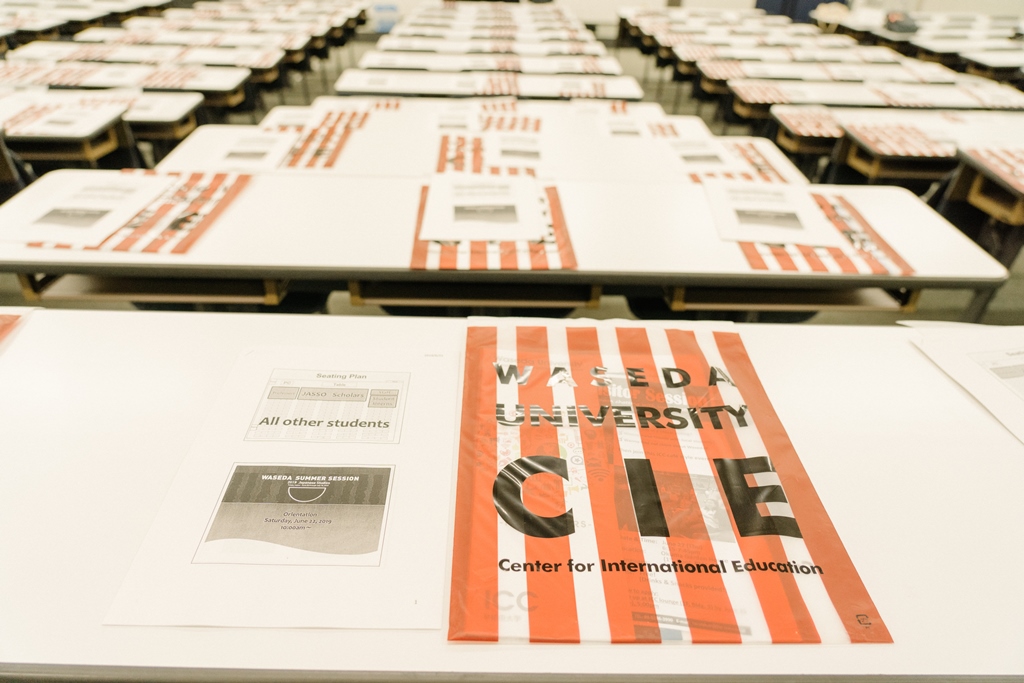
The student's academic performance is assessed according to four different criteria: class participation, attendance, assignments and exams. Each professor, however, may prefer a different attendance policy, and in such case, students should follow the professor's guidelines. Generally, course performance is graded on the following 100-point scale:
| 90-100 | A+ |
|---|---|
| 80-89 | A |
| 70-79 | B |
| 60-69 | C |
| 0-59 | F |
Grading is professor's authority and privilege that the Summer Session office cannot interfere with.
Credit System and Transfer
Credit System
Students can earn 2 credits through 1 regular course. Each class is 100 minutes long and held 16 times. This means that it is necessary for students to attend each course for a total of 26.6 hours (1,600 minutes (100 minutes ×16 times)) to earn 2 credits.
Credit Transfer
Waseda University will issue an official academic transcript for the participants. We will send it to the designated address around the middle of September. Students who wish to transfer the Summer Session program credits are advised to consult with the appropriate academic authorities at their home institutions in advance, whether or not the home institutions are Waseda's exchange partners. The home institution's academic advisors decide whether a particular Waseda Summer Session course may be applied towards the major or elective requirement. Students usually refer to the uploaded syllabus on our Waseda Summer Session website to determine credit transferability to their home institution.
Extracurricular Activities
Nikko Field Trip *Two days trip
Date: June 27 Friday - 28 Saturday
Nikko Field Trip is one of the best activities offered by this program, a two-day bus trip to Nikko Toshogu Shrine and Edo Wonderland. You will visit Nikko Toshogu Shrine, which enshrines the deity Tosho Daigongen, the first shogun of the Edo Shogunate, Tokugawa Ieyasu, and have a special experience at the Edo Wonderland, which recreates a vast Edo townscape with the beautiful mountains of Nikko in the background. Participation in this Nikko Field Trip is mandatory in order to receive a certificate of completion for this program.
Countryside Field Trip *Three days trip
Date: It will be announced.
Students can participate in a 3-day/2-night field trip to countryside where traditional Japanese culture remains as an extracurricular activity.
More information will be announced as it becomes available.
Takaosan (Mount Takao) Hiking Tour *One day trip
Mt. Takao is famous as a tourist attraction that attracts many visitors because of its beautiful nature in each of the four seasons and its six varied hiking trails. The cable cars and lifts make it easy for anyone to climb the mountain. Come hike in nature with your classmates!
Date and Details will be announced.
Imperial Palace Run
We are planning to hold a running event using the outer perimeter of the Imperial Palace (Kokyo in Japanese). Often referred to as the “Kokyo Run” for short, the running course is approximately 5 km per lap. Since it is a circular course, you can start freely from anywhere, and since there are no traffic signals, you can run nonstop. Many people enjoy running at the Imperial Palace, from beginner runners to experienced runners who run full marathons. Come and enjoy running with your classmates!
Date and Details will be announced.
Fireworks Night
Fireworks are one of the most popular summer traditions in Japan. We will prepare a variety of handheld fireworks for everyone to enjoy together.
Date and Details will be announced.
